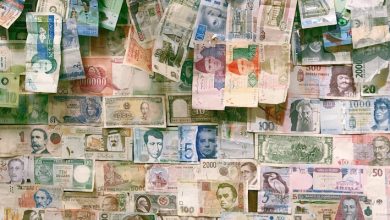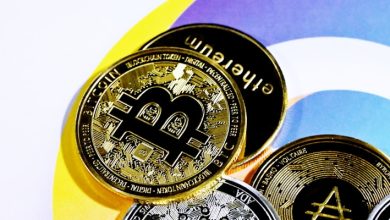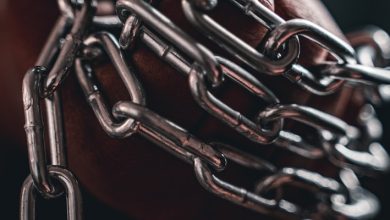The Role of DAOs in Decentralized Governance and Decision-Making

- The Evolution of Decentralized Autonomous Organizations (DAOs)
- Exploring the Concept of Decentralized Governance in DAOs
- The Impact of DAOs on Traditional Decision-Making Processes
- Challenges and Opportunities in Implementing DAOs for Governance
- Case Studies: Successful Applications of DAOs in Decision-Making
- The Future of DAOs: Trends and Innovations in Decentralized Governance
The Evolution of Decentralized Autonomous Organizations (DAOs)
The evolution of decentralized autonomous organizations (DAOs) has been a fascinating journey in the realm of decentralized governance and decision-making. DAOs have come a long way since their inception, with advancements in technology and a growing interest in decentralized systems propelling their development.
One of the key aspects of the evolution of DAOs is the increasing complexity of their structures and functions. Initially simple organizations with basic decision-making processes, DAOs have evolved into sophisticated entities capable of managing complex tasks and operations autonomously. This evolution has been driven by the development of smart contract technology and the integration of various decentralized technologies.
Another important aspect of the evolution of DAOs is the growing emphasis on transparency and accountability. As DAOs have become more prominent in various industries and sectors, there has been a greater focus on ensuring that these organizations operate in a transparent and accountable manner. This has led to the development of mechanisms such as on-chain governance and transparent voting processes to ensure that decisions are made in a fair and open manner.
Overall, the evolution of DAOs has been characterized by a shift towards greater autonomy, transparency, and efficiency. As these organizations continue to grow and evolve, they are likely to play an increasingly important role in decentralized governance and decision-making processes across a wide range of industries and sectors.
Exploring the Concept of Decentralized Governance in DAOs
Decentralized Autonomous Organizations (DAOs) are revolutionizing the way governance and decision-making are handled in various industries. In DAOs, power is distributed among members rather than being centralized in a single authority. This decentralized governance model allows for more transparent, efficient, and inclusive decision-making processes.
DAOs operate on blockchain technology, which ensures transparency and immutability of records. Smart contracts are used to automate decision-making processes, eliminating the need for intermediaries. This not only reduces the risk of corruption but also increases the speed and accuracy of decision-making.
Members of a DAO can participate in governance by voting on proposals using their tokens. The more tokens a member holds, the more influence they have on decision-making. This ensures that decisions are made by those who have a vested interest in the success of the organization.
One of the key benefits of decentralized governance in DAOs is the ability to scale globally while maintaining local autonomy. DAOs can operate across borders without being subject to the jurisdiction of any single government. This allows for greater flexibility and adaptability in a rapidly changing global landscape.
Overall, decentralized governance in DAOs represents a paradigm shift in how organizations are structured and operated. By leveraging blockchain technology and smart contracts, DAOs are able to create more democratic, transparent, and efficient decision-making processes that empower members and drive innovation.
The Impact of DAOs on Traditional Decision-Making Processes
Decentralized Autonomous Organizations (DAOs) have the potential to revolutionize traditional decision-making processes by introducing a new level of transparency and efficiency. By leveraging blockchain technology, DAOs enable members to participate in governance and decision-making without the need for intermediaries or centralized authorities.
One of the key impacts of DAOs on traditional decision-making processes is the elimination of hierarchy and bureaucracy. In a DAO, decisions are made collectively by its members through voting mechanisms, ensuring that every voice is heard and considered. This flat organizational structure promotes inclusivity and diversity in decision-making, leading to more innovative and effective outcomes.
Furthermore, DAOs operate on smart contracts, which are self-executing agreements with the terms of the contract directly written into code. This automation of decision-making processes reduces the potential for human error or bias, ensuring that decisions are executed exactly as intended by the members of the organization.
Another significant impact of DAOs is their ability to foster trust among members. By recording all decisions and transactions on the blockchain, DAOs provide a transparent and immutable record of the organization’s activities. This transparency builds trust among members and stakeholders, creating a more accountable and reliable decision-making process.
Challenges and Opportunities in Implementing DAOs for Governance
Implementing DAOs for governance presents both challenges and opportunities in the realm of decentralized decision-making. One of the main challenges is ensuring that DAOs are truly decentralized and not controlled by a single entity or group. This requires designing governance structures that allow for a diverse range of participants to have a say in decision-making processes. Additionally, ensuring transparency and accountability within DAOs is crucial to maintaining trust among members.
On the flip side, implementing DAOs also presents unique opportunities for more efficient and transparent governance. DAOs can streamline decision-making processes by automating voting and other governance mechanisms. This can lead to faster decision-making and increased efficiency in executing initiatives. Furthermore, DAOs have the potential to increase participation and engagement among community members, as they provide a platform for individuals to have a direct impact on the projects they care about.
Overall, the challenges and opportunities in implementing DAOs for governance require careful consideration and strategic planning. By addressing issues related to decentralization, transparency, and accountability, organizations can harness the full potential of DAOs for more effective and inclusive decision-making processes. Through thoughtful design and implementation, DAOs have the power to revolutionize governance and empower communities to shape their own destinies.
Case Studies: Successful Applications of DAOs in Decision-Making
Several successful applications of Decentralized Autonomous Organizations (DAOs) have demonstrated their effectiveness in decision-making processes. These case studies showcase the potential of DAOs in revolutionizing governance and enhancing transparency in various sectors.
- **Blockchain Technology:** One notable example of DAOs in action is the utilization of blockchain technology to facilitate secure and transparent transactions. By leveraging smart contracts, DAOs can automate decision-making processes and ensure the integrity of transactions.
- **Decentralized Finance (DeFi):** DAOs have been instrumental in the rise of decentralized finance, enabling users to participate in lending, borrowing, and trading without the need for intermediaries. DAOs in DeFi platforms have allowed for more efficient and cost-effective financial services.
- **Governance:** DAOs have also been used in governance structures to enable decentralized decision-making within organizations. By allowing stakeholders to vote on proposals and allocate resources, DAOs promote democratic participation and accountability.
- **Supply Chain Management:** In the supply chain industry, DAOs have been implemented to track and verify the authenticity of products. By using blockchain technology and smart contracts, DAOs can ensure transparency and traceability throughout the supply chain.
- **Content Creation:** DAOs have revolutionized the content creation industry by enabling creators to receive fair compensation for their work. Platforms powered by DAOs allow users to vote on content and distribute rewards based on community feedback.
These case studies highlight the diverse applications of DAOs in decision-making processes across various industries. As organizations continue to explore the potential of decentralized governance, DAOs are set to play a crucial role in shaping the future of governance and decision-making.
The Future of DAOs: Trends and Innovations in Decentralized Governance
In the future, Decentralized Autonomous Organizations (DAOs) are expected to continue evolving and innovating in the realm of decentralized governance. One trend that is gaining momentum is the integration of smart contracts to automate decision-making processes within DAOs. By leveraging blockchain technology, DAOs can ensure transparent and secure governance processes, reducing the need for human intervention.
Another emerging trend is the use of reputation systems to incentivize active participation and contribution from members within a DAO. By rewarding members with a high reputation score, DAOs can encourage engagement and create a more vibrant and inclusive community. Additionally, reputation systems can help mitigate potential governance challenges, such as sybil attacks or manipulation.
Furthermore, DAOs are exploring new forms of governance structures, such as liquid democracy and quadratic voting, to enhance decision-making processes and ensure fair representation of all stakeholders. These innovative models aim to address issues of voter apathy and concentration of power within traditional governance systems, fostering a more decentralized and democratic approach to decision-making.
Overall, the future of DAOs holds great promise for reshaping the landscape of decentralized governance and decision-making. With continued advancements in technology and governance models, DAOs are poised to play a significant role in empowering communities and organizations to collaborate, govern, and make decisions in a more transparent, efficient, and inclusive manner.



